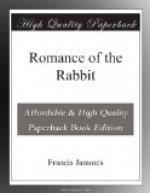When I entered this cobbler’s home I knew at once that I was welcome. Without a word I sat down before the hearth near the children and the dog and I opened my soul to the thousand shadowy voices of things.
In this communion the falling of a half charred twig, the grating of the poker with which the fire was stirred, the blow of the hammer, the flickering of the candle, the creak of the dog’s collar, the round bulging spot of blackness which was the sleeping blackbird, the singing of the cover of the pot, all combined to form a sacred language easier for me to understand than the speech of most men. These noises and these colors are only the gestures and expressions of objects, just as the voice or the glance are among our means of expression and gesture.
I felt that a brotherhood united me to these humble things, and I knew it was childish to classify the kingdoms of nature when there is but one kingdom of God.
* * * * *
Can we say that things never exhibit to us manifestations of their sympathy? The tool grows rusty when it no longer serves the hand of the workman, even as the workman when he abandons the tool.
I knew an old smith. He was gay in the time of his strength, and the sky entered his dark smithy through the radiant noondays. The joyous anvil answered the hammer. And the hammer was the heart of the anvil beating with the heart of the craftsman. When night fell the smithy was lighted by its single light, the glance of the eyes of the burning coal which flamed under the leather bellows. A divine love united the soul of this man to the soul of these things. And when on the Lord’s days the smith retired into pious contemplation, the forge which had been cleaned the night before prayed also in silence.
The smith was my friend. At his dim threshold I often questioned him, and the whole smithy always answered me. The sparks laughed in the coal, and syllables of metal fashioned a mysterious and profound language which moved me like the words of duty. And I experienced there almost the same feelings as in the home of the humble cobbler.
One day the smith fell ill. His breath grew short, and I noticed that now when he pulled the chain of the bellows, formerly so powerful, it also gasped and gradually caught the sickness of its master. The man’s heart beat with sudden jumps, and I heard plainly that the hammer struck the iron irregularly as he brandished it above the anvil. And in the same degree as the light in the eyes of the man faded, the flame of the hearth grew dim. In the evenings it wavered more and more, and there were long intervals when the light vanished on the walls and ceiling.
One day while at work the man felt his extremities turn to ice. In the evening he died. I entered the smithy. It was cold as a body deprived of life. One small ember glowed alone under the chimney, humble and watching, like the praying women that I found later beside the death-bed.




